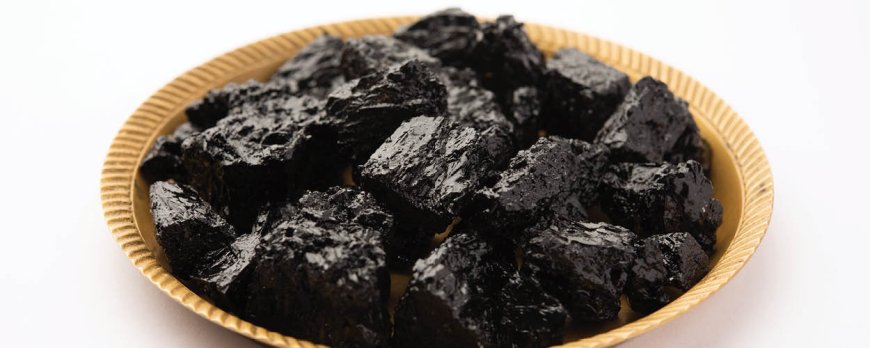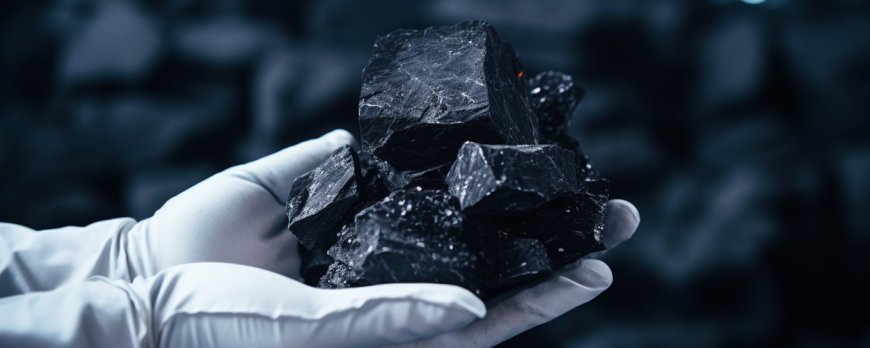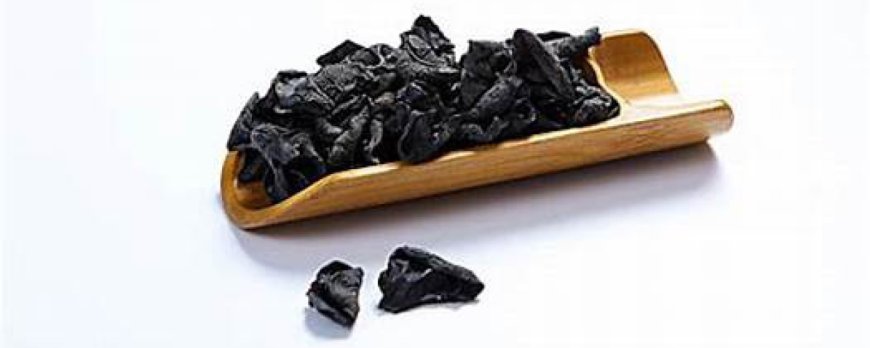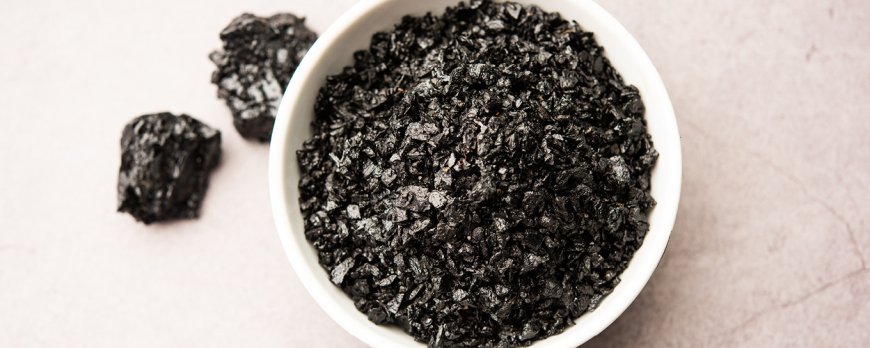Why isn't Shilajit FDA approved?
Explore the reasons 'Why isn't Shilajit FDA approved?'. Our article dives deep into FDA regulations and Shilajit specifications.

Why isn't Shilajit FDA approved?
Shilajit, a traditional herbal remedy, is not FDA approved due to its classification as a dietary supplement. In the United States, dietary supplements are not regulated like drugs, and therefore, the FDA does not approve them for safety and effectiveness before they are marketed. This lack of FDA approval raises questions about the safety and efficacy of Shilajit products.
Key Takeaways:
- Shilajit is not FDA approved because it is categorized as a dietary supplement.
- The FDA does not regulate dietary supplements like drugs.
- There is limited scientific evidence supporting the potential health benefits of Shilajit.
- Potential side effects of Shilajit include increased iron levels, altered hormone levels, and the risk of contamination.
- It is important to consult with a healthcare provider before taking any dietary supplement, including Shilajit.

Understanding FDA regulations for Shilajit
The FDA has different regulations for dietary supplements compared to drugs, which is why Shilajit does not require FDA approval. Unlike drugs, dietary supplements like Shilajit do not undergo a pre-market approval process by the FDA to assess their safety and effectiveness. Instead, the FDA regulates dietary supplements under the Dietary Supplement Health and Education Act (DSHEA) of 1994. This means that the manufacturers are responsible for ensuring the safety and quality of their products before they are sold to consumers.
Under the DSHEA, dietary supplements are not allowed to make specific claims about curing, treating, or preventing diseases. However, they can make general statements about supporting overall health and well-being. It is important to note that the FDA does have the authority to take action against dietary supplements that are found to be unsafe or make false claims.
When it comes to Shilajit, the FDA expects manufacturers to comply with good manufacturing practices (GMPs) to ensure the quality and purity of the product. This includes proper documentation, ingredient testing, and quality control measures. However, it is important for consumers to be cautious and do their own research when choosing a Shilajit product, as the FDA does not test or certify these supplements before they hit the market.
Summary:
- The FDA has different regulations for dietary supplements compared to drugs, which is why Shilajit does not require FDA approval.
- Dietary supplements like Shilajit are regulated under the DSHEA, and manufacturers are responsible for ensuring the safety and quality of their products.
- Shilajit cannot make specific claims about curing, treating, or preventing diseases, but it can make general statements about supporting overall health.
- The FDA expects manufacturers to comply with GMPs to ensure the quality and purity of Shilajit products, but consumers should still research and choose products carefully.
Limited scientific evidence for Shilajit's health benefits
While Shilajit has been used in traditional herbal medicine for centuries, there is limited scientific evidence to support its claimed health benefits. Despite its long history of use, research on Shilajit is still in its early stages, and further studies are needed to fully understand its potential effects.
Some studies have shown promising results, indicating that Shilajit may have antioxidant, anti-inflammatory, and anti-aging properties. It has also been suggested to enhance energy levels, improve cognitive function, and support the immune system. However, these studies often involve small sample sizes and lack rigorous controls, making it difficult to draw definitive conclusions.
It is important to note that the limited scientific evidence does not necessarily mean that Shilajit does not have any health benefits. It simply means that more research is required to determine its efficacy and safety for various health conditions. Individuals considering taking Shilajit should consult with a healthcare provider who can provide personalized advice based on their specific health needs and concerns.
Until further scientific evidence is available, it is recommended to approach Shilajit with caution. While it may hold potential, its effects and safety profile have not been fully established. As with any dietary supplement, it is important to carefully evaluate the quality and purity of the product, as well as to follow recommended dosage guidelines. By taking these precautions and staying informed, individuals can make well-informed decisions about their health and wellness.

Potential Side Effects and Safety Concerns
It is important to be aware of the potential side effects and safety concerns associated with Shilajit supplementation. While Shilajit has been used in traditional medicine for centuries, limited scientific evidence exists to support its health benefits. As with any dietary supplement, it is crucial to consider the potential risks before incorporating it into your wellness routine.
Some studies have suggested that Shilajit may lead to increased iron levels in the body. This could be a concern for individuals with conditions such as hemochromatosis or those who are already consuming iron-rich diets. Additionally, Shilajit has the potential to alter hormone levels, which may be problematic for individuals with endocrine disorders or those taking hormonal medications.
Furthermore, there is a risk of contamination with heavy metals or fungus in Shilajit products, as this resin is sourced from specific regions and is susceptible to environmental contaminants. It is crucial to purchase Shilajit from reputable sources that conduct rigorous quality control measures to ensure purity and safety.
Given the limited scientific evidence and potential risks associated with Shilajit supplementation, it is highly recommended to consult with a healthcare provider before incorporating it into your wellness regimen. They can assess your specific health needs and advise whether Shilajit is suitable for you. Your healthcare provider can also guide you on proper dosage and monitor any potential side effects or interactions with other medications or supplements you may be taking.
Shilajit Quality Control Measures
Quality control measures play a vital role in maintaining the integrity and safety of Shilajit supplements. As a dietary supplement, Shilajit is not subject to the same rigorous testing and pre-approval process as pharmaceutical drugs by the FDA. However, reputable manufacturers of Shilajit recognize the importance of implementing stringent quality control measures to ensure the purity and potency of their products.
One important aspect of quality control for Shilajit is the sourcing of raw materials. High-quality Shilajit is sourced from pristine mountain regions, where the resin is naturally formed over centuries. The collection and processing methods used by manufacturers should adhere to strict guidelines to minimize the risk of contamination and ensure the product's authenticity.
Additionally, reputable manufacturers may conduct laboratory testing to verify the presence of beneficial bioactive compounds and to screen for potential contaminants. This testing may include analysis for heavy metals, microbial contamination, and other impurities. Third-party testing and certification by independent laboratories can provide an extra level of assurance regarding the quality and purity of Shilajit supplements.
Key Points:
- Quality control measures are essential in maintaining the integrity and safety of Shilajit supplements.
- Reputable manufacturers emphasize strict sourcing guidelines to ensure purity and authenticity.
- Laboratory testing for bioactive compounds and potential contaminants adds an extra level of assurance.
- Third-party testing and certification can provide independent verification of quality and purity.
By prioritizing quality control measures, manufacturers strive to deliver Shilajit products that meet the highest standards of safety and efficacy. However, it is important for consumers to remember that while quality control measures can help ensure the quality of the product, they do not guarantee specific health benefits. It is always advisable to consult with a healthcare provider before starting any new supplement, including Shilajit, to ensure it is safe for individual use.
Shilajit's Legal Status in the United States
Shilajit is legal in the United States, but its regulation differs from that of FDA approved drugs. As a dietary supplement, Shilajit falls under a different category and is not subject to the same rigorous approval process as pharmaceutical drugs. While the FDA does not approve dietary supplements for safety and effectiveness before they are marketed, it does have regulations in place to ensure consumer safety.
Regulations for Dietary Supplements
Unlike FDA approved drugs, dietary supplements like Shilajit do not require pre-market approval from the FDA. However, manufacturers are required to follow strict labeling regulations and good manufacturing practices (GMP) to guarantee the quality and safety of their products. This includes proper testing for contaminants and adherence to quality control measures.
Additionally, the FDA can take action against dietary supplements that are found to be unsafe or in violation of its regulations. This may result in product recalls, warning letters, or legal action against the manufacturer. It is important for consumers to be aware of these regulations and choose reputable brands that prioritize safety and compliance.
Consultation with Healthcare Professionals
While Shilajit is legally available in the United States, it is important to consult with a healthcare provider before adding it to your wellness routine. Dietary supplements can interact with medications and have potential side effects, especially for individuals with underlying health conditions. A healthcare provider can provide personalized advice and guidance based on your individual needs and medical history.
Ultimately, the legal status of Shilajit in the United States does not guarantee its safety or effectiveness. It is essential to exercise caution and make informed decisions when considering the use of dietary supplements.

Is Shilajit Safe Without FDA Approval?
While Shilajit is not FDA approved, it can still be safe to use, but it is crucial to consult with a healthcare provider beforehand. Shilajit falls under the category of dietary supplements, which are not regulated by the FDA in the same way as drugs. Unlike drugs, dietary supplements like Shilajit do not require FDA approval for safety and effectiveness before they are marketed.
Shilajit is a resin that has been used in traditional herbal medicine for centuries, particularly in Ayurveda. It is believed to have various potential health benefits, ranging from boosting energy levels and improving cognitive function to promoting vitality and supporting the immune system. However, it is important to note that the scientific evidence supporting these claims is limited.
Some studies have shown positive effects of Shilajit in animals and humans, but more research is needed to fully understand its benefits and potential risks. Additionally, there are potential side effects associated with taking Shilajit, such as increased iron levels and altered hormone levels. There is also a risk of contamination with heavy metals or fungus, which can have adverse effects on health.
Therefore, it is essential to consult with a healthcare provider before incorporating Shilajit or any other dietary supplement into your routine. They can provide personalized guidance based on your specific health needs and considerations. It is always better to err on the side of caution and prioritize your safety when it comes to using any supplement.
The FDA Approval Process for Supplements
Unlike drugs, dietary supplements like Shilajit do not undergo FDA approval before they are marketed. This is because dietary supplements fall under a different regulatory category than pharmaceutical drugs in the United States. While the FDA has the authority to regulate dietary supplements, they do not review these products for safety and efficacy before they are made available to the public.
The FDA approval process for supplements is different from that of drugs. While drugs must go through rigorous testing and clinical trials to demonstrate their safety and effectiveness, dietary supplements do not have the same requirements. Instead, the responsibility falls on the manufacturers to ensure the quality and safety of their products.
Manufacturers of dietary supplements are required to follow the FDA's Current Good Manufacturing Practices (cGMP), which include guidelines for quality control, labeling, and ingredient testing. These measures are in place to protect consumers from potential risks and help ensure that the products are accurately labeled.
Key Points:
- Dietary supplements, including Shilajit, do not require FDA approval before being marketed.
- The FDA regulates dietary supplements under a different category than drugs.
- Manufacturers are responsible for ensuring the quality and safety of their supplements.
- The FDA's cGMP guidelines outline requirements for quality control and labeling of dietary supplements.

Shilajit's Certification by FDA
Shilajit is not certified by the FDA as it falls under the category of dietary supplements. In the United States, dietary supplements are not regulated in the same way as drugs. Unlike drugs, dietary supplements do not require FDA approval for safety and effectiveness before they are marketed to consumers. This regulatory distinction is important to understand when considering the certification status of Shilajit.
As a resin used in traditional herbal medicine, Shilajit has been touted for its potential health benefits. However, it is important to note that there is limited scientific evidence supporting these claims. While some studies have shown positive effects in animals and humans, further research is needed to fully understand the extent of Shilajit's benefits and potential risks.
When considering the use of Shilajit, it is crucial to be aware of the potential side effects and safety concerns associated with its consumption. These include increased iron levels in the body, altered hormone levels, and the risk of contamination with heavy metals or fungus. To ensure your well-being, it is recommended to consult with a healthcare provider before incorporating any dietary supplement into your routine.
Although Shilajit is not FDA certified, it is important to note that dietary supplements are still subject to certain quality control measures. Manufacturers are responsible for ensuring that their products are safe for consumption and accurately labeled. However, without FDA certification, there is an added responsibility for consumers to research and choose reputable brands that prioritize quality and adhere to good manufacturing practices.
Conclusion
In conclusion, Shilajit is not FDA approved due to its classification as a dietary supplement, and while it may have potential health benefits, further research is needed to fully understand its efficacy and safety.
Shilajit falls under the category of dietary supplements, which are not regulated like drugs in the United States. Unlike drugs, dietary supplements do not require FDA approval for safety and effectiveness before they are marketed. This means that the FDA does not evaluate or endorse the claims made by supplement manufacturers.
Although Shilajit has been used in traditional herbal medicine for centuries and has shown some positive effects in animal and human studies, the limited scientific evidence available makes it difficult to draw definitive conclusions about its benefits. More rigorous research, including clinical trials, is needed to determine its true potential and any potential risks.
It's important to note that taking Shilajit may have potential side effects, such as increased iron levels and altered hormone levels, which can have negative health consequences. There is also a risk of contamination with heavy metals or fungus, as the purity of Shilajit products can vary. Therefore, it is crucial to consult with a healthcare provider before incorporating Shilajit or any other dietary supplement into your routine.
FAQ
Why isn't Shilajit FDA approved?
Shilajit is not FDA approved because it falls under the category of dietary supplements, which are not regulated like drugs in the United States.
What are the FDA regulations for Shilajit?
The FDA does not approve dietary supplements for safety and effectiveness before they are marketed.
Is there scientific evidence supporting the health benefits of Shilajit?
There is limited scientific evidence to support the potential health benefits of Shilajit, and more research is needed.
Are there potential side effects of taking Shilajit?
Yes, potential side effects of taking Shilajit include increased iron levels, altered hormone levels, and the risk of contamination with heavy metals or fungus.
How can I ensure the quality of Shilajit products?
It is important to choose Shilajit products that undergo rigorous quality control measures to ensure safety and efficacy.
What is the legal status of Shilajit in the United States?
Shilajit is legally available in the United States as a dietary supplement.
Is it safe to use Shilajit without FDA approval?
It is important to consult with a healthcare provider before taking any supplement, including Shilajit, to ensure safety.
How does the FDA approval process for supplements differ from drugs?
The FDA's approval process for dietary supplements is different from that of drugs, as supplements are not required to undergo pre-market approval for safety and effectiveness.
Is Shilajit certified by the FDA?
Shilajit is not certified by the FDA due to its classification as a dietary supplement.
What should I take away from this information?
It is important to understand that Shilajit is not FDA approved and there is limited scientific evidence supporting its health benefits. It is recommended to exercise caution and consult with a healthcare professional before taking any supplement.


































































































































